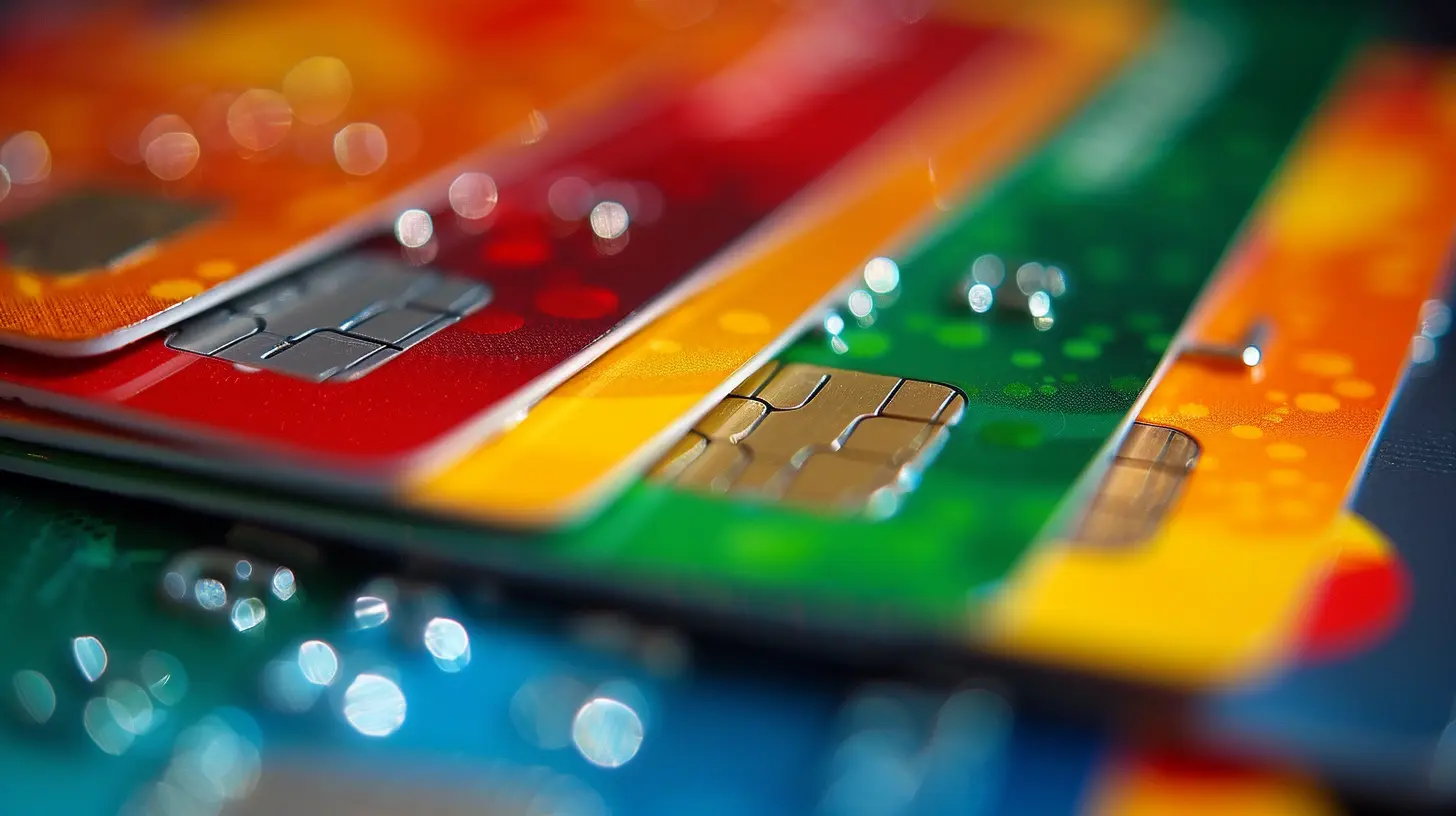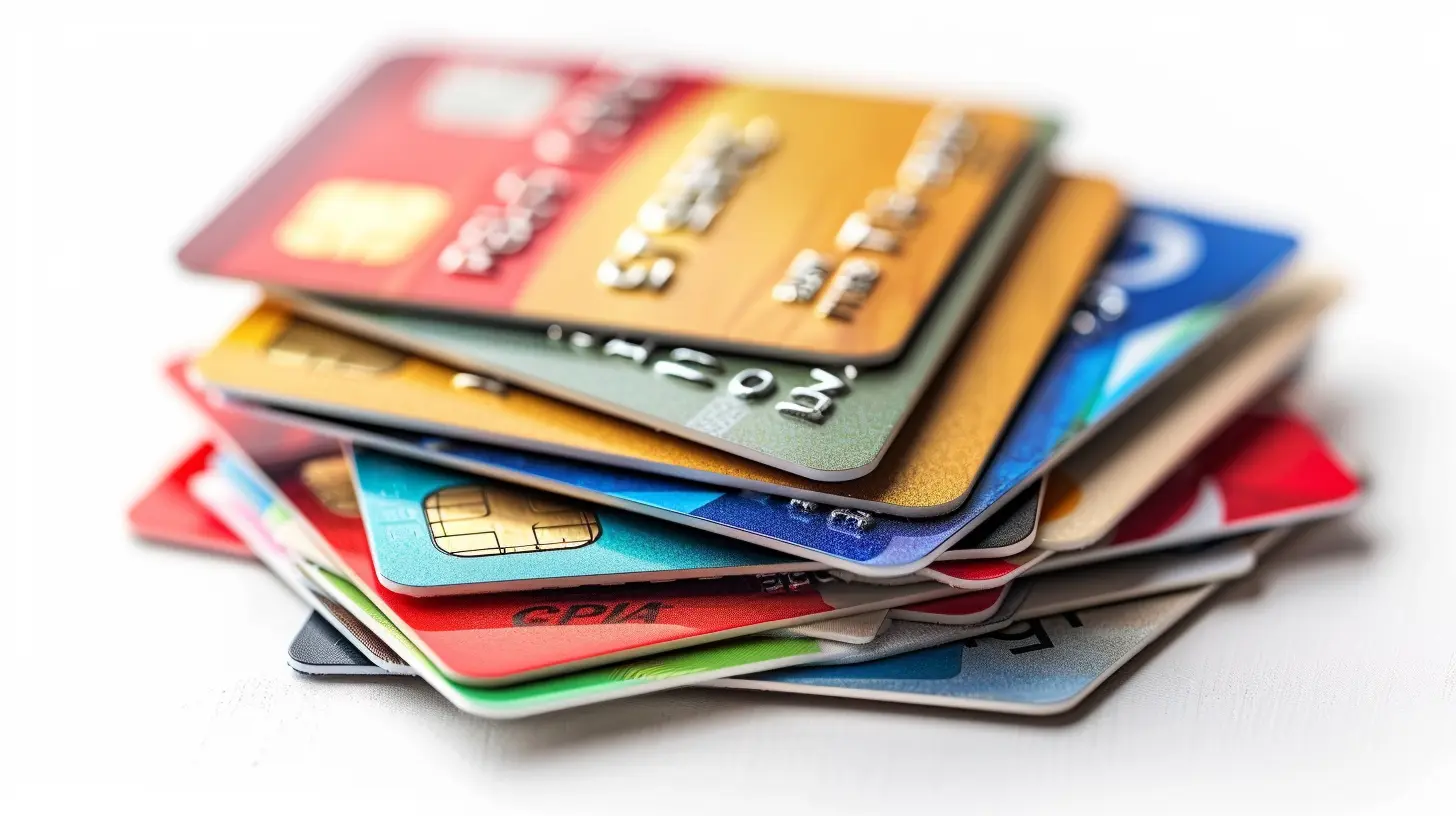How Closing Credit Cards Can Hurt Your FICO Score
8 November 2025
So, you’ve finally paid off that credit card—and you’re thinking, “Sweet! Time to close this account and cut that card into a hundred pieces!” It feels like a final boss battle victory in the game of personal finance, right?
But wait… not so fast.
Before you go celebrating, let’s chat about why closing a credit card might actually hurt your FICO score. Yep, you read that right. Closing a credit account—especially a good one—can do more harm than good. Shocking, right?
Let’s break it down and find out why keeping those little plastic rectangles can be more helpful than you’d expect.
What Exactly is Your FICO Score, Anyway?
First things first, let’s clear up what a FICO score even is. Think of it like your financial report card. It tells lenders how trustworthy you are with credit—like borrowing money, paying bills on time, and juggling debt responsibly.Your score usually ranges between 300 and 850. The higher, the better. A good FICO score helps you snag lower interest rates, better loan deals, and even your dream apartment or job (yes, employers check sometimes too!).
Here’s a breakdown of what makes up your FICO score:
- 35% Payment History – Do you pay on time?
- 30% Amounts Owed (Credit Utilization) – How much of your available credit are you using?
- 15% Length of Credit History – How long have your accounts been open?
- 10% Credit Mix – Got a nice variety (credit cards, loans, etc)?
- 10% New Credit – Are you applying for new stuff too often?
Keep these in mind—they’re gonna come back in our story.
Why You Might Want to Close a Credit Card
Let’s be fair, there are a few good reasons someone might want to shut down a card:- You’ve paid it off—finally!
- High annual fees are annoying
- You’re trying to protect yourself from overspending
- You don’t use it, so what’s the point?
- It was opened during your wild college days (no judgment)
All valid points! But just like in any good rom-com, your credit card might just be the misunderstood hero. Closing it could throw your credit score into chaos.
The Hidden Pitfalls of Closing A Credit Card
You’d think paying off and closing a card would reward you with a nice credit score boost, right? Ironically, it might do the exact opposite.Here’s why...
1. It Messes With Your Credit Utilization
Remember earlier when we said 30% of your FICO score is based on how much of your available credit you’re using? That’s called credit utilization. Ideally, you want to stay under 30%—or even better, under 10%.Let’s say you have two cards:
- Card A: $5,000 limit, $0 balance
- Card B: $5,000 limit, $2,000 balance
Your total available credit is $10,000, and you’re using $2,000. That’s 20% utilization. Pretty solid!
Now, if you close Card A, your total limit drops to $5,000. Now your utilization shoots up to 40%—uh oh. That’s over the ideal range and signals risk to lenders.
So even if you owe the same amount, your score could dip because it looks like you’re over-reliant on credit. Sneaky, right?
2. It Cuts Into Your Length of Credit History
Next up: credit age. This one’s a big deal because lenders love to see a long history of responsible credit use. Think of it like dating—nobody wants to be someone’s first relationship.If the card you close is one of your oldest accounts, you’re basically erasing your financial track record. Sure, that account may still sit on your credit report for 7–10 years, but it won’t help build your average credit age anymore.
So closing old accounts shortens your credit life story—like ripping out the first few chapters of your book.
3. Fewer Accounts = Less Credit Mix
Variety is the spice of life—and credit scores, too. A healthy credit mix shows you can juggle different types of credit responsibly: credit cards, car loans, student loans, mortgages, etc.Closing a credit card trims that mix. If you only have one or two types of credit left, it might not be enough to keep this section of your score healthy.
4. It Could Trigger a Domino Effect
Here’s a little-known truth: credit scores are complex critters, and sometimes closing one account doesn’t just hurt one area—it ripples through your whole profile.Close a card → higher utilization → lower score → higher interest on future loans → more financial stress 😰
It’s like pulling on one thread and unraveling your whole financial sweater. Not fun.
Are There Situations Where Closing a Card is Okay?
Absolutely. We’re not saying you should hoard cards forever like a squirrel with credit nuts. There are cases when it genuinely makes sense to say goodbye:- The card has nasty annual fees and no real benefits
- It tempts you to overspend or fall into debt
- You’re consolidating your finances for simplicity
But even in these cases, you can still make smart moves. Let’s talk about those next.
Smart Strategies If You Still Want to Close a Card
So you’ve weighed the pros and cons and you’re still thinking, “Yeah, I really want to close it.” No worries—we’ve got some tricks to help minimize the damage.1. Pay Down Other Balances First
Before you close your card, try to knock down balances on your other cards. That way, your overall utilization stays low even after losing a chunk of available credit.Every little bit helps.
2. Request a Limit Increase on Other Cards
Not only does this help offset the lost credit line from the closed card, but it’s also great for your utilization rate.Pro tip: Only do this if you’ve been behaving well—on-time payments, no wild spending sprees, and stable income go a long way.
3. Transfer the Credit Line (If Possible)
Some card issuers let you transfer your credit limit from one card to another before you close it. So you keep the available credit, just on a different card. Sneaky-smart, right?4. Keep the Card Open But Use It Occasionally
If the card isn’t costing you anything (no annual fee), why not keep it open? Use it once every few months for gas or groceries, set up autopay, and forget about it.It’ll keep your account active and your credit utilization and history healthy.
5. Don’t Close Multiple Cards at Once
Thinking of closing a few accounts for a spring financial cleaning? Try to space them out. Closing too many at once screams “danger” to lenders.One at a time, my friend. Slow and steady wins the credit race.
Final Thoughts
Credit scores can be a weird thing, huh?Closing a credit card may feel like a triumphant move—like finishing a chapter and moving on. But “closing the book” on an old card can backfire in ways most people don’t expect.
Before you close that account, think about how it affects your credit utilization, credit age, credit mix, and your overall FICO picture.
The bottom line? Sometimes, the best move is to keep the card in your wallet—even if it never sees the light of day. Treat it like a valuable souvenir from your financial journey: it may not seem useful now, but it’s proof of how far you’ve come.
So, before you snip that card in half with a satisfied grin—pause, reflect, and make sure it’s the best play for your credit health. Because in the game of credit, strategy is everything.
Your future self (and your credit score) will thank you.
all images in this post were generated using AI tools
Category:
Fico ScoreAuthor:

Angelica Montgomery
Discussion
rate this article
1 comments
Kirk Lawrence
The article effectively highlights the nuanced impact of closing credit cards on FICO scores, emphasizing the importance of credit utilization and account longevity. However, it could delve deeper into alternative strategies for managing unused cards, as well as the psychological factors influencing credit behavior that drive these decisions.
November 13, 2025 at 5:54 AM

Angelica Montgomery
Thank you for your insightful feedback! I appreciate your suggestion to explore alternative strategies and the psychological factors at play, and I'll consider incorporating those elements in future discussions.


